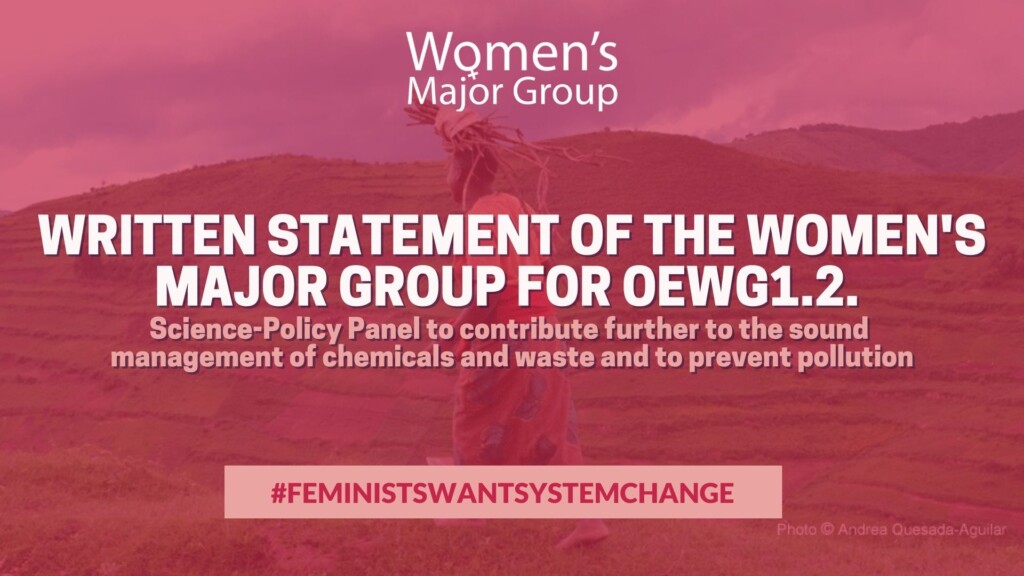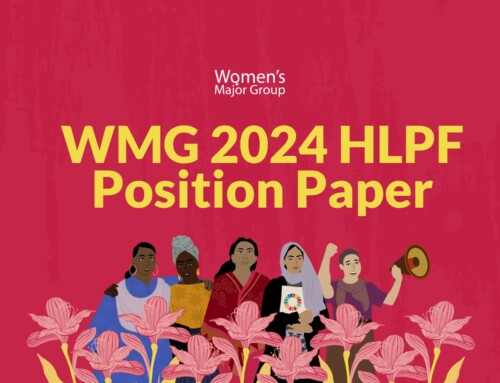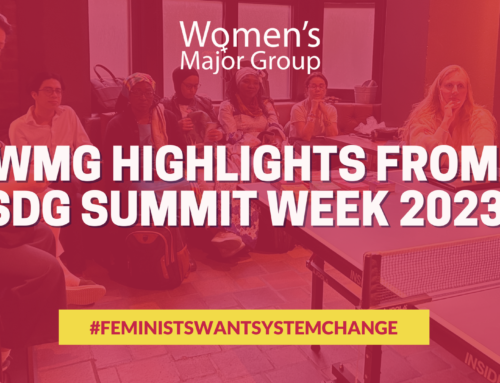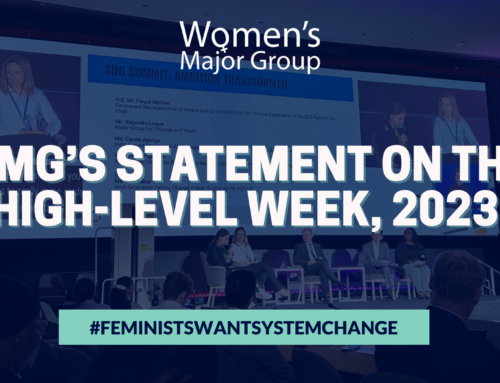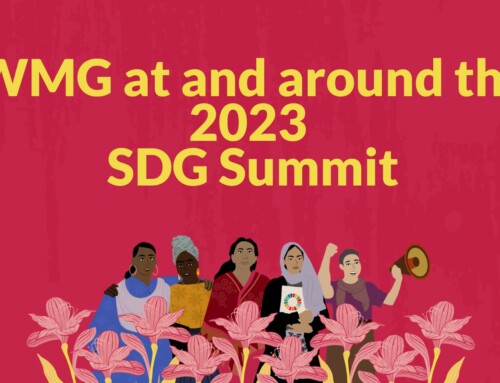Written Statement of the Women’s Major Group for OEWG1.2. : Science-Policy Panel to contribute further to the sound management of chemicals and waste and to prevent pollution.
GENERAL VIEWS
We believe that a science-policy panel can be an important tool to understand much better how chemicals, waste and pollution are affecting our societies, our environment and our future with the right to a healthy environment. We urgently need this understanding for informed environmental action and policies. Furthermore, a comprehensive understanding is critical to leave no one behind.
As early as the 1995 Beijing Declaration and Platform for Action, countries declared that: “Environmental risks in the home and workplace may have a disproportionate impact on women’s health because of women’s different susceptibilities to the toxic effects of various chemicals”1 and recognized the need to establish “develop gender-sensitive databases, information and monitoring system”2 on toxic chemicals and hazardous waste.
Nevertheless, 25 years later, the gender dimensions of chemical exposure are often not well understood due to limitations in gender-related data collection and analysis.
Therefore, it is important that the science-policy panel is established in a gender-responsive manner:
On the SCOPE of the PANEL
We believe that the future panel should focus on chemicals across their lifecycle, on the impacts of pollution, and on issues not already covered or not sufficiently addressed. In particular, we underline the need for inter- and transdisciplinary research.
As mentioned by many member states including the UK, Mexico and others, we believe the value chain approach should not be considered as part of the objective of the panel, as it would diverge from the resolution and shift the focus on products rather than on chemicals, waste, and the prevention of pollution.
On the FUNCTIONS of the PANEL
We believe that the panel’s function should prioritize the functions of horizon scanning as well as the facilitation of information-sharing with low and middle income countries, and capacity building.
Under these functions, it’s key that the panel addresses the need for better gender-related data on chemicals and their effects, waste and pollution. Therefore, the science-policy panel must provide guidance to improve data collection and data availability, and should ensure its quality with gender-disaggregated data.
In line with Article 6 of the Resolution, we expect transparency, regional and gender balance, and full and effective participation in all decision-making processes, including Indigenous Peoples and Local Communities, and Indigenous peoples’ traditional knowledge.
As mentioned in INF/4, we do reiterate that collaborations with existing bodies will be key for success, both for scope and functions. The Kunming Montreal Global Biodiversity Framework adopted at CBD COP15 in December, has a specific Target (7), addressing chemicals, waste and pollution-reduction – “by reducing negative impacts of pollution from all sources by 2030; including at least half reduction of risks from pesticides and highly hazardous chemicals, and to work towards elimination plastic pollution.”
We recall that access to a clean, healthy, and sustainable environment is a universal human right, as are science-based policies to protect the human rights of individuals and communities exposed to hazardous substances and wastes in addressing impacts.
Finally, the future panel should not be misused to prevent political action. Governments should already act following the precautionary principle and adopt measures to prevent exposure to hazardous substances, on the basis of the best available scientific evidence, as required by the right to science.
As mentioned by many member states during the plenary discussions, we support ensuring a gender-responsive SPP, upholding human rights, and including both traditional and scientific knowledge in the SPP.
On CONFLICT of INTEREST
The science-policy panel should not be undermined by economic, commercial or political interests. This is why it will be crucial to avoid conflict of interest from the early stage of negotiations, protecting the panel from businesses and groups with commercial, economic and political interests, or any others who put profits above human rights. Failure to do so will perpetuate toxic harms, undermine science, and the credibility of the new panel.
Thank you.

